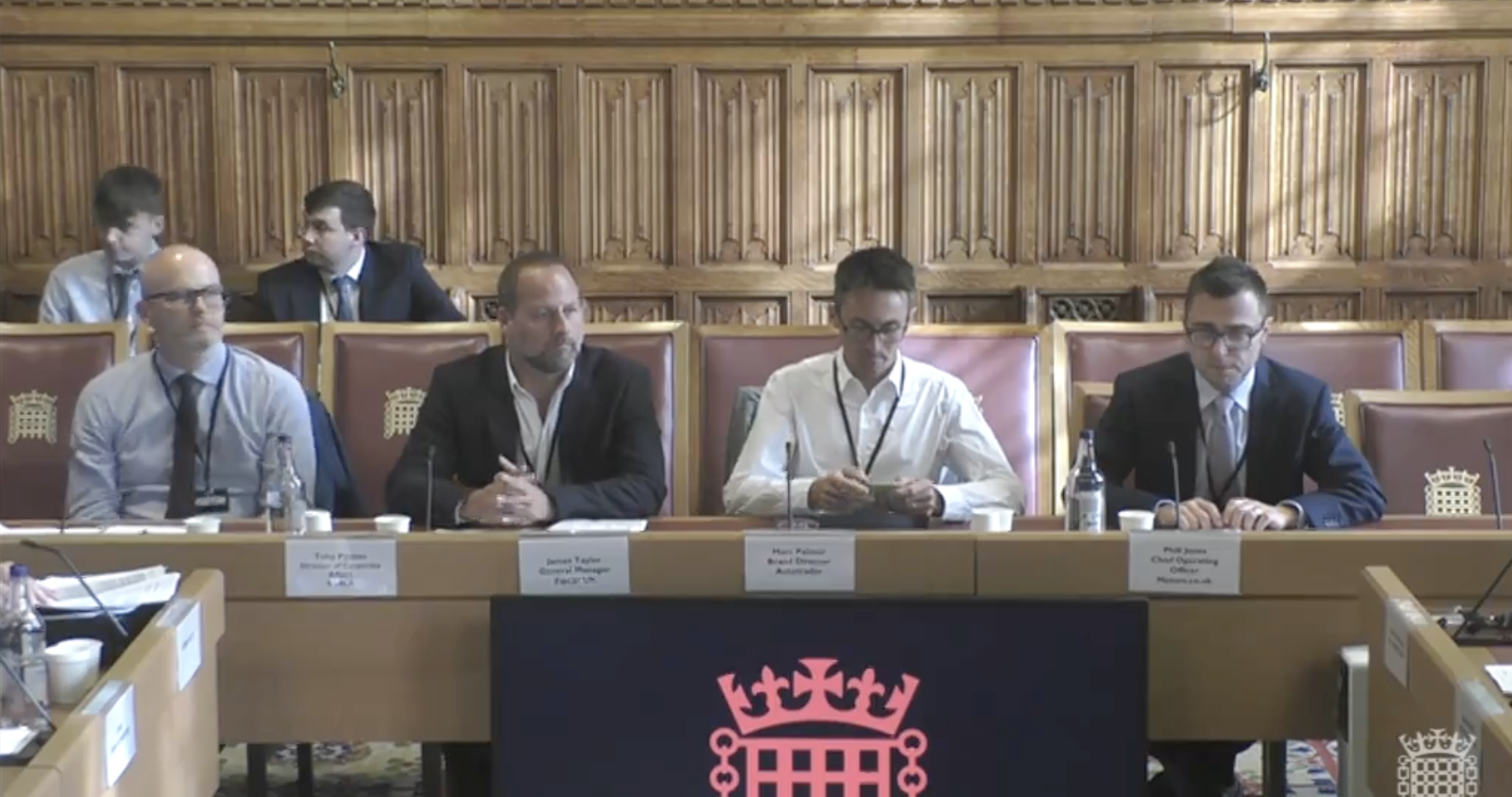Used EVs will never achieve price parity with their petrol and diesel counterparts, according to a panel of automotive industry experts.
As part of the House of Lords inquiry into electric vehicles car dealer suppliers, manufacturer bosses and trade chiefs have today (Sept 6) been giving evidence to the upper chamber’s environment and climate change committee.
First up this morning were Auto Trader brand director Marc Palmer, Motors.co.uk chief operating officer Phill Jones, British Vehicle Rental and Leasing Association director of corporate affairs Toby Poston and Zipcar general manager James Taylor.
After getting underway shortly after 10am, the quartet answered questions from the committee for around an hour, dropping several bombshells along the way.
Among the comments which will be sure to turn heads were remarks from Jones, who claimed that used EV prices will ‘never be aligned completely’ with more traditional powertrains.
That is despite some models coming close to price parity in recent months as a result of tumbling used EV values.
He also called on the government to introduce more initiatives for motorists to buy a used EV, as opposed to a new one.
Speaking at the Houses of Parliament this morning, Jones said: ‘I think that there is a real world challenge that if you walked into a car dealership to buy a two-year-old used electric vehicle you might find that actually it’s cheaper to buy the new one.
‘The used one won’t have an incentive on it in terms of finance. You will also have the anxiety that the brand new one is a newer model and technology is improving.’
He added: ‘A real life example would be a one-year-old Fiat 500 with 1,00o miles on the clock is £13,500 for a petrol one and the same in electric is £19,000.
‘It’s a real difference and of course there’s running costs and so on – but that’s really hard for consumers to work through.’
On what can be done to help stimulate the used car market, Jones said: ‘There is good in terms of downward pressure being stimulated by the manufacturers – like the price cuts that Tesla put through.
‘Manufacturers are making more EVs and that is driving the price down and that is flowing down to the used market.
‘The gap is reducing but there are other things that we can do in terms of the VAT on those used cars and the incentives potentially for home charging points.
‘I think most people expect it to be headline price slightly higher but it’s really hard to do that maths on the overall costs to our lifestyles.
‘I think that prices will never be aligned completely but I do think that gap should be one or two thousand pounds and certainly as cars get older you should see that.’

Progress of EVs is ‘fragile’
Also up for debate was the potential barriers to entry into the EV market.
Auto Trader’s Marc Palmer said that while progress is being made in new EV sales, that development remains ‘fragile’.
He also expressed concerns to the committee that a large number of motorists are being ‘held back’ as a result of price concerns and changes to their lifestyle.
Palmer said: ‘We are seeing a bit of progress in recent years over the sale and registration of new electric vehicles – they are now making up 16 to 17 per cent of new registrations – but that progress is fragile.
‘We have seen recently, probably for the last six to nine months, a slowdown for demand in private registrations which is being driven in part by macro-economic conditions and pressure on household budgets.
‘We are of course pleased with the progress made in the fleet sector and it is the fleet sector that is driving largely the speed of adoption to date.
‘Another thing is that the transition is unequal. Interest in electric vehicles and drivers of electric cars are in more affluent postcodes with driveways.
’80 to 85 per cent of electric cars owned by private individuals are charged on driveways. Those people don’t quite have the same concerns.
‘There are three core groups that are being left behind by the transition. They are those over 55, women and people on lower income, in lower income households.
‘We see a real risk that those people could be left behind in the transition so action needs to be taken to help them out and the core reasons they’re being left behind are around cost, which is a big barrier, perceptions around public charging infrastructure and around the changes required to lifestyle, which is holding people back.’


































